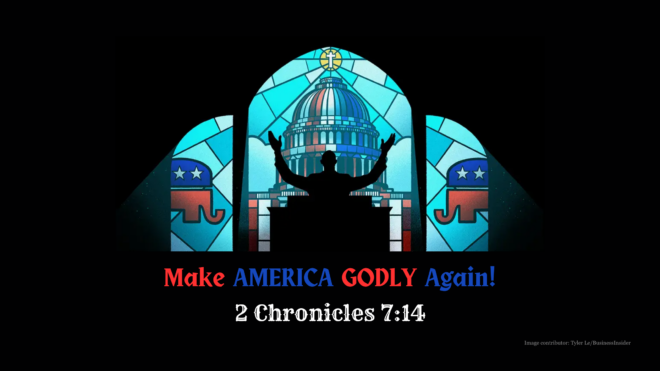Matt Miller, Californian commentator, comments in his book The Tyranny of Dead Ideas that it probably will be the upper middle class, or ‘lower upper’ as he calls it, that will lead the opposition to the so called 1%, and that they have the clout to do it. He starts quoting Richard Hofstadter and the Progressive era writer Walter Weyl to the effect that the appearance of a new class of extremely wealthy people during the First Gilded Age [1876-1929] aroused resentment among the moderately affluent and professional people of his day, and they led the Progressive charge. I will reproduce part of Weyl’s quote:
To a considerable extent the plutocracy is hated not for what it does but for what it is. Our over-moneyed neighbors cause a relative deflation of our personalities. . . . Everywhere . . . we meet the millionaire’s good and evil works, and we seem to resent the one as much as the other. Our jogging horses are passed by their high powered automobiles. We are developing new types of destitutes – the automobileless, the yachtless, the Newport-cottage-less. The subtlest of luxuries become necessities, and their loss is bitterly resented. The discontent of today reaches very high in the social scale . . .
Miller says it’s not just about resentment; “the broader reform possibilities in these developments do not spring merely from Upper Lower resentment or from popular revulsion at industry excess. They stem instead from the way the experience of humiliation and loss of status at the hands of the ultra rich expands the boundaries of Lower Upper empathy.” That is, the Lower Upper starts to imagine that it understands the problems of the lower 80% better, though I suspect this is really a case of sympathy rather than empathy. Miller says that the Lower Uppers will rediscover the role of luck:
Lower Uppers have been largely blind to the role of luck because it has been drilled into them, from their earliest successes jumping through the hoops of the American meritocracy, that they weren’t “lucky” at all. They were “smart.” They were “good.” They were “hard-working.”
Now that their second-tier status is awakening them to the fragility of “merit” as the source of their self-esteem and as the basis for where they “deserve” to stand in society, Lower Upper’s will start seeing luck’s hand elsewhere. They’ll see it not only in their own story or in the fate of the ultrarich above them, but in the destiny of millions of their countrymen, now buffeted and struggling with rapid economic change.
On the other side, Reihan Salam, one of the leading reform conservatives, has taken off against the upper middle class, the 20%, a group that he admits to being technically a part of himself. They, not the superrich, hold the balance of power. It is they who, while living very well compared to the average American, feel threatened by the elimination of the mortgage interest deduction, and fight for the 529 college savings plans, which mostly benefit the upper middle class. He charges that the upper middle class is mainly interested in fighting tax hikes on themselves and not on the super-rich. It is they, he claims, who support occupational licensing, who oppose the kind of thing that Institute for Justice supports, like inexpensive professional teeth-whiteners [without expensive dental degrees], who function like hair braiders and would be a lot cheaper than dentists for certain things. [No substitute for real dental care, I warn you!] They oppose bringing more skilled immigrants in to compete with themselves, while welcoming unskilled immigrants as servants.
He also charges that it is upper middle class people who promote NIMBYism. I’m not sure that’s fair. Working class people may be less strict about the outward aesthetics of their communities, but they are just as quick to demand that any land use that threatens their convenience, or potentially their safety, be denied. I cut my political teeth more than 30 years ago on the battle to save the Orange County Rescue Mission in Santa Ana, California. True enough, it was the upper middle class town elites who used ‘redevelopment’ law to be able to run it out of its downtown location. But when it came time to put it in a new place, local ‘community activists’ of a Saul Alinsky breed led the Latino community, which was not upper middle class, to oppose it. [As to why the church and Christian institutions are considered less desirable neighbors than they once were, and for an argument that we need to learn to minister to ‘communities’ rather than just individuals, see Compassion, Justice, and the Christian Life by Robert Lupton.]
I do believe, however, that class and income resentment in America is generally toward the classes closest to one’s own. I am quite willing to believe that it is the upper middle class that most resents the very rich, and that calls for ‘soaking the rich’ from those that are not upper middle class are more based on fantasy – the fantasy that the very rich and the ‘corporations’ can mostly meet the costs of government and philanthropy by themselves, and so the average person will not need to be burdened very much, which reminds me of when they wanted to make Jesus king by force after He fed the five thousand. I also remember the days of racial tensions in the late sixties, when ‘middle class’ was somewhat broader than the upper middle class, and was in fact a code word for ‘honky’. [Of course you have to remember that the standard of living of the white working class was higher then than it was before or has been since.]
It’s also an important thing to note that so called ‘affluent’ communities like Newport Beach or Laguna Beach, and most ‘affluent’ communities except for very small enclaves, are really communities of the 20% more than of the 1%. Even in Newport Beach as a child, I was made aware of my unusual status. Of course, in those days the ‘upper middle class’ was relatively well off materially, but in a time when immigrants were few, not many of them had domestic help, and the young people tended to have domestic skills that I didn’t have. It was the Great Compression anyhow, a time when ‘inequality’ was much less than now. But even today most of the ‘upper middle class’ in these communities would deny that they were ‘rich’. Churches, by promoting outreach programs to the other side of the county, are the best agencies for helping these people recognize their unusual blessings – and some of them have begun to take up this task. Of course, I’ll now reassure the upper middle class readers that they have no more reason to feel guilty about their ‘unusual blessings’ as such than I as a trustfunder do about mine. As I like to say, we are all ‘rich kids’ to God.



